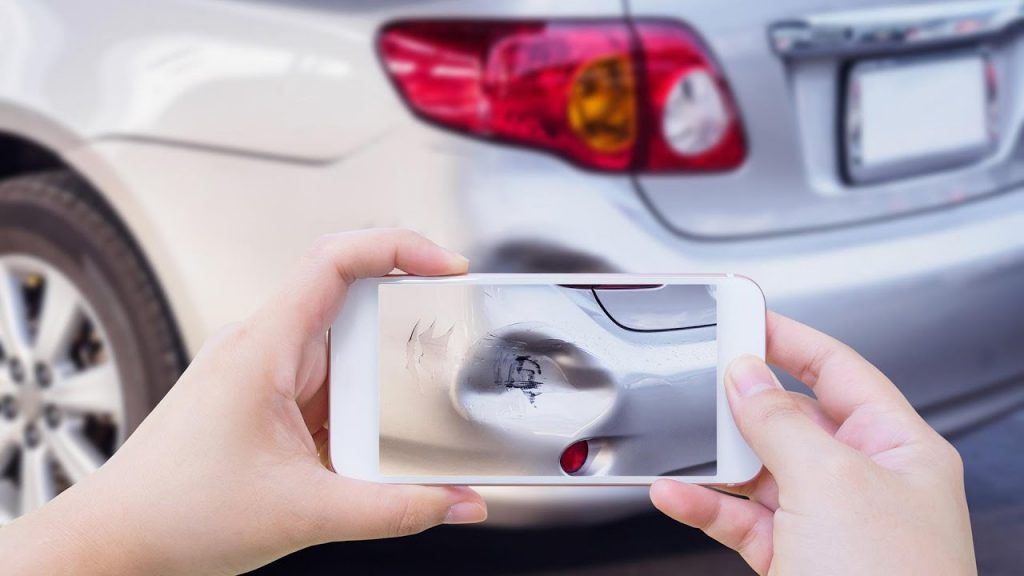Car accidents can be stressful and overwhelming experiences. However, knowing what steps to take immediately after an accident can make a significant difference in ensuring your safety, protecting your rights, and facilitating the claims process. In this comprehensive guide, we will walk you through the essential actions to take after a car accident, providing you with a step-by-step approach to navigate the aftermath with confidence and effectiveness.
1. Introduction
Getting involved in a car accident is a jarring experience that can leave you feeling disoriented and anxious. However, it’s crucial to stay calm and composed in order to handle the situation effectively. By following the steps outlined in this guide, you’ll be equipped with the necessary knowledge to deal with a car accident efficiently and minimize potential complications.
2. Stay Calm and Assess the Situation
The first step after a car accident is to remain calm and assess the situation. Take a deep breath and try to gather your thoughts. Ensure that you and others involved are out of immediate danger and away from oncoming traffic. If possible, move your vehicle to a safe location, such as the side of the road or a nearby parking lot.
3. Move to a Safe Location
Once you’ve assessed the situation and confirmed your safety, it’s important to move your vehicle to a safe location, especially if it’s obstructing traffic. By doing so, you’ll help prevent further accidents and ensure the smooth flow of traffic. If moving your vehicle is not possible due to severe damage or injuries, focus on warning other drivers by using hazard lights, flares, or reflective triangles.
4. Exchange Information
After ensuring everyone’s safety, it’s essential to exchange contact and insurance information with the other party involved in the accident. Obtain their full name, phone number, address, driver’s license number, and insurance details. Additionally, try to gather information from any witnesses present at the scene, as their statements may be valuable for insurance purposes or legal proceedings.
5. Document the Accident Scene
To support your insurance claim and protect your interests, documenting the accident scene is crucial. Use your smartphone or a camera to take clear photographs of the vehicles involved, the damages sustained, and the overall accident scene. Make sure to capture any visible injuries as well. Additionally, jot down important details such as the date, time, location, weather conditions, and any contributing factors that may have led to the accident.
6. Report the Accident to the Authorities
In many cases, it’s necessary to report the accident to the police or relevant authorities. Contact the local law enforcement agency and provide them with accurate and detailed information about the accident. This will ensure that an official report is filed, which can be useful for insurance claims and legal proceedings. Request a copy of the accident report for your records.
7. Notify Your Insurance Company
After addressing immediate safety concerns and reporting the accident, it’s crucial to notify your insurance company as soon as possible. Contact your insurance provider and provide them with the necessary information regarding the accident. Be honest and provide accurate details about the incident. This will help expedite the claims process and ensure that you receive the support you need.
8. Seek Medical Attention
Even if you believe your injuries are minor, it’s essential to seek medical attention after a car accident. Adrenaline and shock can mask symptoms, and some injuries may not be immediately apparent. A medical evaluation will not only ensure that you receive appropriate care but also document any injuries for insurance purposes. Keep track of all medical records, including diagnoses, treatments, and prescriptions.
9. File an Insurance Claim
Once you’ve gathered all the necessary information and sought medical attention, it’s time to file an insurance claim. Contact your insurance company and follow their specific instructions for filing a claim. Provide them with all the relevant documentation, including the accident report, photographs, medical records, and any other evidence related to the accident. Cooperate fully with your insurance adjuster throughout the process.
10. Consult with an Attorney
In more serious accidents, it may be advisable to consult with an attorney who specializes in personal injury or car accident cases. An attorney can help protect your rights, navigate complex legal processes, and negotiate with insurance companies on your behalf. They can also advise you on potential legal actions and ensure that you receive fair compensation for your losses.
11. Repairing Your Vehicle
If your vehicle sustains damages in the accident, it’s important to obtain repair estimates from reputable mechanics or body shops. Your insurance company may have preferred providers, so consult with them to determine the best course of action. Ensure that the repairs are done professionally and retain all receipts and documentation for reimbursement or insurance purposes.
12. Keep Track of Expenses
Throughout the aftermath of the accident, it’s crucial to keep detailed records of all accident-related expenses. This includes medical bills, vehicle repair costs, transportation expenses, and any other relevant costs incurred due to the accident. Organize your receipts and invoices systematically, as this will help you when filing insurance claims or seeking reimbursement.
13. Be Mindful of Time Limits
It’s important to be aware of any time limits associated with filing claims or lawsuits related to the car accident. Different jurisdictions have varying statutes of limitations, which restrict the amount of time you have to take legal action. To protect your rights and avoid potential issues, familiarize yourself with the applicable time limits and act promptly to protect your interests.
14. Dealing with Emotional Distress
A car accident can have lasting emotional and psychological effects on those involved. It’s essential to recognize and address any emotional distress you may be experiencing. Reach out to friends, family, or professionals for support if needed. Take care of your mental well-being and don’t hesitate to seek help if you’re struggling to cope with the aftermath of the accident.
15. Learn from the Experience
Finally, take the opportunity to learn from the experience and reflect on what happened. Identify areas where you could have acted differently to prevent the accident, such as driving habits or situational awareness. Use this knowledge to become a safer and more conscientious driver. Remember, accidents can happen to anyone, but taking proactive steps to improve your driving skills and awareness can significantly reduce the likelihood of future accidents.
Conclusion
Experiencing a car accident can be a traumatic event, but being prepared and knowing what to do can make a significant difference. By following this step-by-step guide, you’ll be equipped with the knowledge and confidence to handle the aftermath of a car accident effectively. Remember to stay calm, prioritize safety, gather information, document the scene, report the accident, and seek medical attention if necessary. Additionally, promptly notify your insurance company, file a claim, and consider seeking legal advice when appropriate. By taking these steps, you’ll be better positioned to navigate the challenges and protect your rights after a car accident.
FAQs
1. How long do I have to report a car accident to my insurance company? You should report a car accident to your insurance company as soon as possible. Most insurance policies have specific time frames within which you must report an accident, typically ranging from 24 to 72 hours.
2. Should I contact the police after a minor accident with no injuries? Even for minor accidents, it’s generally a good idea to contact the police and file a report. This provides an official record of the incident, which can be valuable for insurance claims and legal purposes.
3. Can I file a claim if the accident was partially my fault? Yes, you can still file an insurance claim if the accident was partially your fault. However, the claim may be subject to comparative negligence laws, which means your compensation could be reduced based on the degree of your fault.
4. How long do I have to file a personal injury lawsuit after a car accident? The time limit for filing a personal injury lawsuit after a car accident varies depending on the jurisdiction. It’s essential to consult with an attorney to understand the specific statute of limitations that applies to your case.
5. What should I do if the insurance company denies my claim? If your insurance claim is denied, you have the right to appeal the decision. Consult with an attorney who specializes in insurance claim disputes to explore your options and take appropriate legal action.




